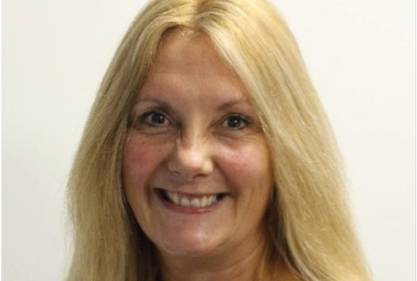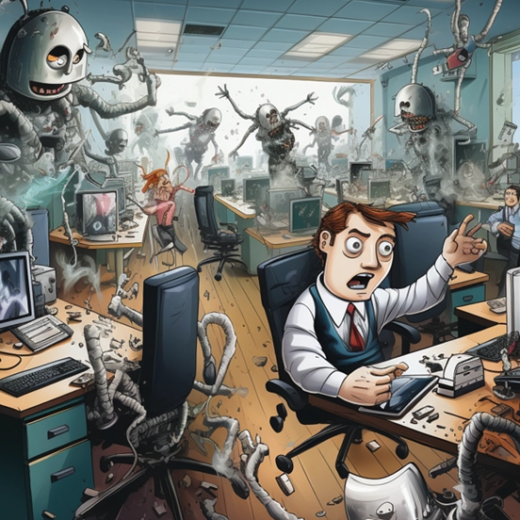
Women in Tech Excellence Awards: Corran Griffin
Corran Griffin, Program Director at Construction IT, is a finalist in the 2020 Women in Tech Excellence Awards in the Transformation Leader: Tech Sector category. In celebration of Corran’s nomination, we asked her to tell us more about her role at Construction IT, her top tips for women entering the IT sector, and more. Tell us about […]
Corran Griffin, Program Director at Construction IT, is a finalist in the 2020 Women in Tech Excellence Awards in the Transformation Leader: Tech Sector category. In celebration of Corran’s nomination, we asked her to tell us more about her role at Construction IT, her top tips for women entering the IT sector, and more.
Tell us about your current role and what motivates you. What has been the driving force behind your career strategy?
As a Programme Director at Construction IT, I have a fantastic hybrid role which encompasses programme delivery, project and programme governance and staff management.
When it comes to programme delivery, I have recently successfully completed an extensive end user computing transformation programme for a London Borough Council. The programme touched every council directorate and aims to give a new laptop device running the latest Microsoft Office and collaboration technologies to over 5,000 staff.
For me, a highlight of this role is that it is customer facing. To be successful, I’ve focused on building relationships with my peers and sponsors at the council and I have learnt that a good relationship relies on proof of delivery against your commitments. Working closely with the Head of IT Portfolio at the council I have formed a true partnership and we have transformed the way that the programme operates, moving it into a collaborative space in which the team now work together to deliver benefits to all parties. I believe that my authentic approach, focus, and determination have had a positive impact on the programme team.
In terms of governance, Construction IT has defined processes to follow to ensure the service engagements we bid for have been properly scoped and costed; and then follow our standard methodology in delivery. Part of my role is reviewing these bids to ensure we do not mis-sell something – this would be a disaster for both Construction IT and our customers. What everyone wants is a successful outcome!
I have over 10 staff reporting to me, spanning several different grades, from junior project administrators to project managers. They are a mixture of permanent and contract staff and are motivated by different things.
The thing I like best is using my 25+ years of management experience to help mentor, develop, advise, and motivate my team. Seeing someone grow in their role is one of the most rewarding experiences.
My career strategy has always been to take a role I believe I will enjoy with a well-respected employer. Then when I am there, I try to make myself stand out by working hard, showing an interest and being engaging. I have a direct style, but I am also funny and approachable. Wherever I have worked, I have always quickly been noticed and promoted.
What is the biggest lesson you have learned in your career?
Being a woman doesn’t hold you back, in fact, it has its advantages. I started in IT over 30 years ago, working first for an aerospace company and then an oil company. Both were male dominated environments with very few women in leadership positions. To hold your own, you need to be authentic. I’ve seen women in the workplace make mistakes by either trying to fit in by being “one of the lads” or by playing down their own abilities.
It is hard and actually a bit boring to routinely be the only woman in a meeting or a team BUT you can use this to stand out. If you are the only woman then you will have a different perspective, a different mindset and a different voice – you need to not be afraid to use it. It can be intimidating at first but you need to force yourself to speak up, to share your thoughts and ideas and opinions.
Once your confidence grows you will start to stand out and even better, be a role model for other women. You should use your influence to give other women interesting tasks or projects, so that they too might shine. Then before you know it, being a woman in a meeting won’t make you the odd one out anymore. That’s the way things are heading now, but it has taken a long time.
What is your top tip for women looking to start a career in IT?
I would give the same initial advice to anyone, irrespective of gender. Ensure you do plenty of research and try to speak to people who work in the industry today so you can understand more about it, be clear that it’s something you’d be interested in doing, and that you’ll enjoy it and find it motivating.
I would also suggest thinking about the sort of roles/profession you would like to aspire to because the IT industry has so many different areas. IT doesn’t have to be technical, so don’t be put off by that. There are roles in project management, sales, account management and many more!
I would encourage people not to focus too much on purely income but to consider finding a career path they’ll enjoy working in long term.
The industry has changed a lot in the last 20 years and continues to change constantly, to be successful long term takes time, effort, and energy – if you don’t enjoy the industry and your role it’s a long time to spend doing something you don’t enjoy. Be yourself, work in teams, and be confident in sharing your views and opinions.
What is the one thing you would do to encourage more women into the IT sector?
I think we must start at the beginning here by providing advice and encouragement to young women looking to begin an exciting, rewarding and successful career in IT. Education needs to start during school years when often people can have misunderstandings about the IT industry and rule it out before knowing the wide variety of roles, skills and career options available.
A career in IT is not just about computers and writing software (even though that’s part of it). The best way to provide this insight and ongoing support to those who may be interested is through female role models whom young women can relate to and look to follow.
Having more female role models who can share experiences, provide coaching, inspiration and guidance would be a major step forward.





